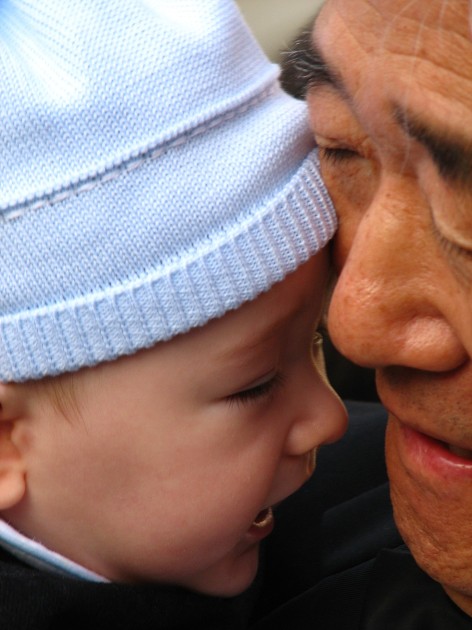The Genetics Game: Do Genetics Affect Language Learning?
Without a doubt, genetics play a large role in our lives. It is often because of genetics that we excel at certain activities, and genetics can even drive us to make choices that others, with different genetic maps, might not. In this case, it stands to reason that genetics can also impact how easily an individual is able to learn a foreign language. But, according to experts, it seems that successful language learning is dependent on three factors: what you learn, when you learn, and how you learn. While some of these do tie back to genetics, others do not, so read on to find out if it’s your genes standing in the way of multilingualism or if you just need a dose of good old fashioned determination!
 Image via PhotoPin
Image via PhotoPin
WHAT
What you choose to learn can be made easier by your genes, scientists claim. In a recent study, experts discovered that students with a larger Heschl’s gyrus (an area of the brain that processes pitch) were able to pick up tonal languages such as Mandarin, Cantonese, and Vietnamese with more ease. Just as musical abilities can affect language learning, so can the genetic predisposition to pitch make certain languages easier than others. However, this genetic anomaly does not, unfortunately, apply to all languages, meaning even if your Heschl’s gyrus is enormous, learning French or Spanish might not be so easy.
 Image via PhotoPin
Image via PhotoPin
WHEN
Although you are never too old to learn a language, science unwaveringly points to how much more challenging it can be as you grow older. Babies as young as nine months can begin to lose the ability to identify sounds not used in their native language, and 15 is often touted as the cut-off date for being able to learn multiple languages with ease. The reason why lies in the workings of the brain. A young child’s brain is still growing and developing, making it easier for them to map out and compartmentalize information. Therefore, a youngster can learn multiple languages simultaneously and ‘file’ them away in their separate compartments to refer to when need be. Adults, on the other hand, compartmentalize new languages together, which means they may begin forgetting a second language when they start learning a third.
 Image via PhotoPin
Image via PhotoPin
HOW
At the end of the day, even experts agree that genetics aren’t the end-all to high language learning abilities. Studies show that attitude can go a long way towards creating aptitude in those hoping to pick up a new skill. For example, those who approach a subject with the predisposed belief that they won’t be good at it tend to not work as hard to master it as those who look at the task with confidence. Furthermore, many teens tend to excel at becoming polyglots not because of age or genetics but because of their ‘teen mentality’. Young adults have a greater tendency to pinpoint and narrow in on things they enjoy doing, hence they are more likely to spend a large amount of time attempting to master it. Adults, on the other hand, spread their attention in a wider scope and tend to lack the focus and time to commit to the things they enjoy (such as language learning).
The good news is, even if your Heschl’s gyrus is small, even if you are well past the optimal language learning age, and even if you don’t have a ton of time to dedicate to your studies, you can still conquer a new tongue! Quality is always more important than quantity, so signing up for some top-tier language classes should be the first thing you do if you want to achieve multilingual success. And as long as you keep your knowledge fresh with free online placement tests and games, learning a new language, with or without the perfect genetic balance, should be an enjoyable and easy process!
